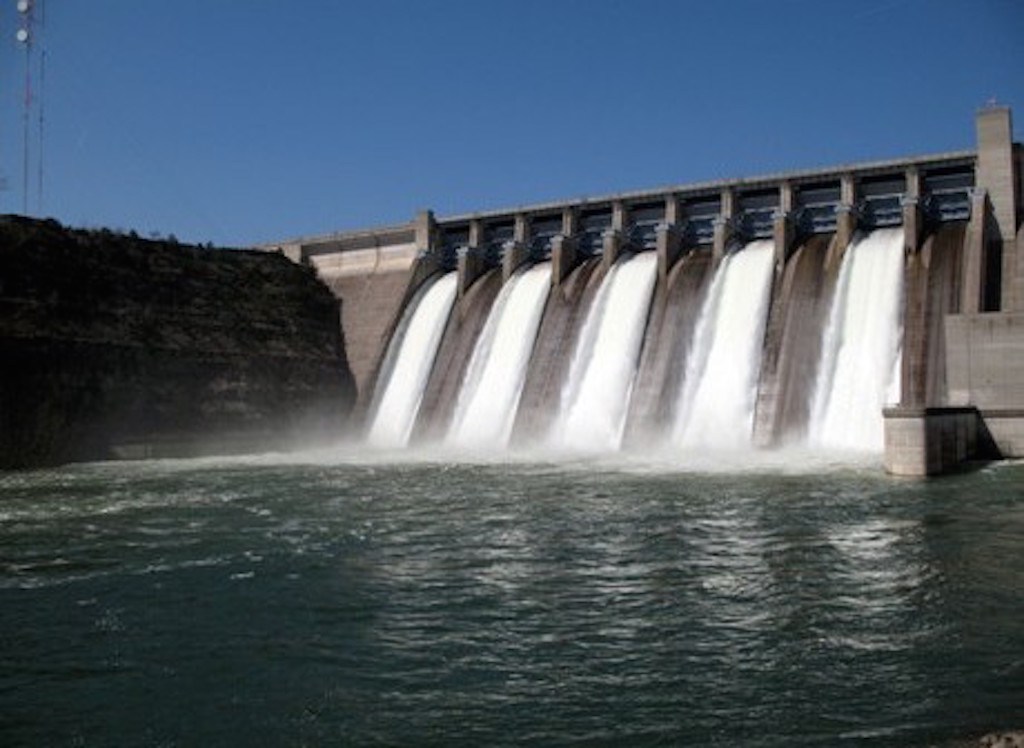
This chaos is enough to see that the federal government’s prediction of 7000 MW by the end of 2016 is a wild dream.
Last week, I went on a two-day trip that changed my ignorant position on the nation’s perennial energy crises. It was a privileged opportunity to inspect Jebba and Kainji Hydropower Plants and also interact with the management. The two plants, located in Niger State, have been under the management of its concessionaire, Mainstream Energy Solutions Limited, since November 2013.
The first revelation that shattered a popular myth among Nigerians was that the plants actually generate more energy than is being transmitted. This was first pointed out at the Jebba Plant where the Assistant General Manager (Maintenance), Engr. Paul Ondachi, introduced us to the technicalities and challenges of generating power for evacuation by the Transmission Company of Nigeria, and then to the National Control Centre for regulation on the National Grid and coordinated distribution across Nigeria.
Jebba Plant, which had one of its six generating units out of service at the time of our visit, has an installed capacity of 578.6 Megawatts. The story of the one non-operational generating unit was a consequence of a problem repeatedly highlighted by officials of the plant, including Mr. Ondachi. The refusal or inability of the transmission company to evacuate energy generated by the plant suppresses the capacity of the generators, resulting in devastating damages and higher costs of maintenance.
The functional generating units at Jebba Plant currently have a capacity of producing 482 MW for the grid. Unfortunately, that had been under-utilised, as either the transmission company refused to evacuate the energy generated or the frequency of the Grid monitored by NCC forced the plant to shut down its generators because there was “no use for the electricity.”
I was alarmed when it was explained that both the transmission company and control centre allowed energy to be wasted while the nation is either in darkness or frustrated by epileptic supply of power. The MD/CEO of Mainstream Energy Solutions Limited, Engr. Lamu Audu, at a question and answer session during the trip, gave an even more frightening account of the setbacks encountered since taking over management of the two plants.
Mr. Audu lamented about the liquidity challenge that has been hindering their operations. “As it is now, we have an outstanding invoices of about N44 billion for power supplied to the national grid. How are we expected to sustain our operations and deliver on our concession agreement when the market isn’t playing its part? Only 19 to 25 percent of our invoices are paid. In fact, meeting up with salary payments have been hard for us.” This, he buttressed, made it difficult for them to also attract lenders as all are unwilling to invest in such a serially owed venture.
The company’s Executive Director, Barr. Siraj Abdullah, corroborated the non-compliance of the market, adding what was lost to power generated but not evacuated or consumed by the energy market. “There’s a month we lost N464 million. Some days we lose N18 million. All for energy not used by the market. This is different from the unpaid invoices. On the average, we lose 20 to 25 percent of the energy we generate.”
As to why the transmission company allows energy to be wasted when the nation is in critical need of it, Mr. Audu observed that it’s parts of the market politics he didn’t want to delve into. Instead, he continued with the damage that has caused. “Our generators are suppressed by the national grid to function below their capacity, and this makes us spend more on maintenance. One of our generating unit has blown up because of this, and it will cost us $20 million to have it fixed.”
This backdrop of a hostile energy market and suppressed production, according to Mr. Audu, is already a setback on the agreement to have the two plants restored to their nameplate capacity. “When we took over management of these plants, Kainji hydropower plant wasn’t generating any megawatt,” said Mr. Audu. “In fact, electricity was imported to power this station. It was running on a generator set; can you imagine?”
What the concessionaires did to revive the Kainji plant was presented to us in a power point presentation depicting the state of the facilities by the expatriate Chief Operating Officer of Kainji plant, Mr. Jose Villegas. The concessionaires inherited a dysfunctional facility that generated zero megawatt and was being run on a generator set, but they have now turned it into an active plant that generates 440 MW.
Kainji is Nigeria’s premier hydropower station, commissioned in 1968, and its sorry state and dilapidation over the years is a familiar trend of our almost cultural misuse of government-run properties and services. Presenting their dismay, the concessionaires stated that there was no “statutory overhaul” of the plant since it began operation almost 50 years ago.
And while it may seem that operational setbacks are the main challenge of the concessionaires, forex crisis has similarly threatened them to the point that Mr. Audu highlighted the possibility of the harsh economy frustrating them out of business. The company’s purchase orders are in dollar rates, and as a result of the instability, several purchase orders have been renegotiated to reflect the state of the unstable forex rate.
But what may keep the company striving to remain in the market is the acquisition loan they took through Guaranty Trust Bank and Africa Finance Corporation. This loan, which is in dollar, is being paid back in the same dollar without any grace from CBN, even though the latter had offered to ease the concessionaires’ forex needs. This chaos is enough to see that the federal government’s prediction of 7000 MW by the end of 2016 is a wild dream. May God save us from us.
@gimbakakanda on Twitter
PremiumTimes
END

“May God save us from us”! Ummmm